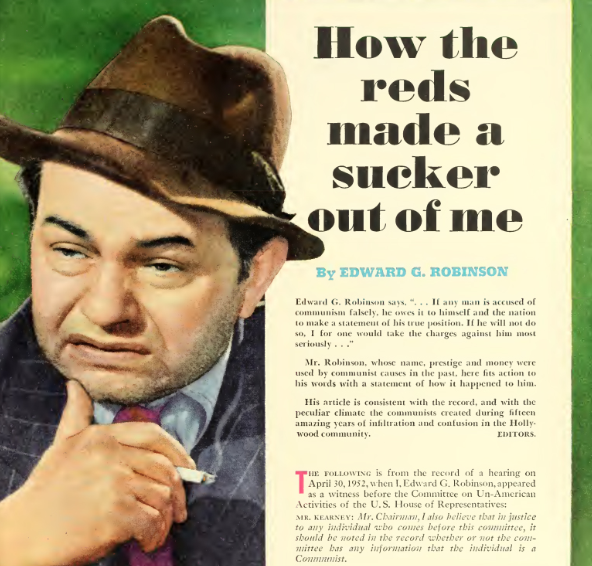Paul Draper was an actor
singer/dancer who was accused of being a communist in 1949
Draper had three acting credits
for film in 1936, 1948 and 1949. He did some Broadway work but not much and
most of his career consisted of touring city to city.
Draper had served as a spokesman for a
committee of actors, producers and writers to oppose an inquiry by the HUAC. He
publicly supported Henry Wallace, the Progressive Party nominee for President
in 1948, and performed in benefits to raise money for groups and causes labeled
as subversive by the committee.
In 1949, he sued a Connecticut woman, Mrs.
Hester Mac McCullough of Greenwich, for $200,000
for libel after she protested their performing at a local concert, describing
them as having been denounced as pro-Communist. The suit became a cause
celebre, prompting Westbrook Pegler, the columnist, to call for contributions
to help pay for the woman's defense. Ed Sullivan canceled Draper on his television show and wrote a
letter of apology to his advertisers. The Draper’s mother stupidly went to Moscow,
praised the Soviet way of life and down talked the United States. She also went through the trouble of forming
an organization called the Congress of American Women. The report of the
Committee on un-American Activities states that this is an affiliate of the
Women'(s International Democratic Federation (WIDF) a Soviet front. "The
purpose of these organizations is . . . to serve as a specialized arm of ,
Soviet political warfare and demobilize the United States and democratic
nations generally in order to' render them helpless In the face of the
Communist drive for world conquest," this report of the committee begins.
'
The trial ended in a hung jury in May 1950.
A routine of his was to appear on CBS's Toast
of the Town in 1950 but was cut out of the segment due to protests the station
received. He was eventually forced to give up touring due to no sales largely
brought on by bad press.
Draper left the country in 1951 and settled in
Switzerland for three years. He exiled himself. No one forced him to go. His
act failed because theaters goers disapproved of his politics.


